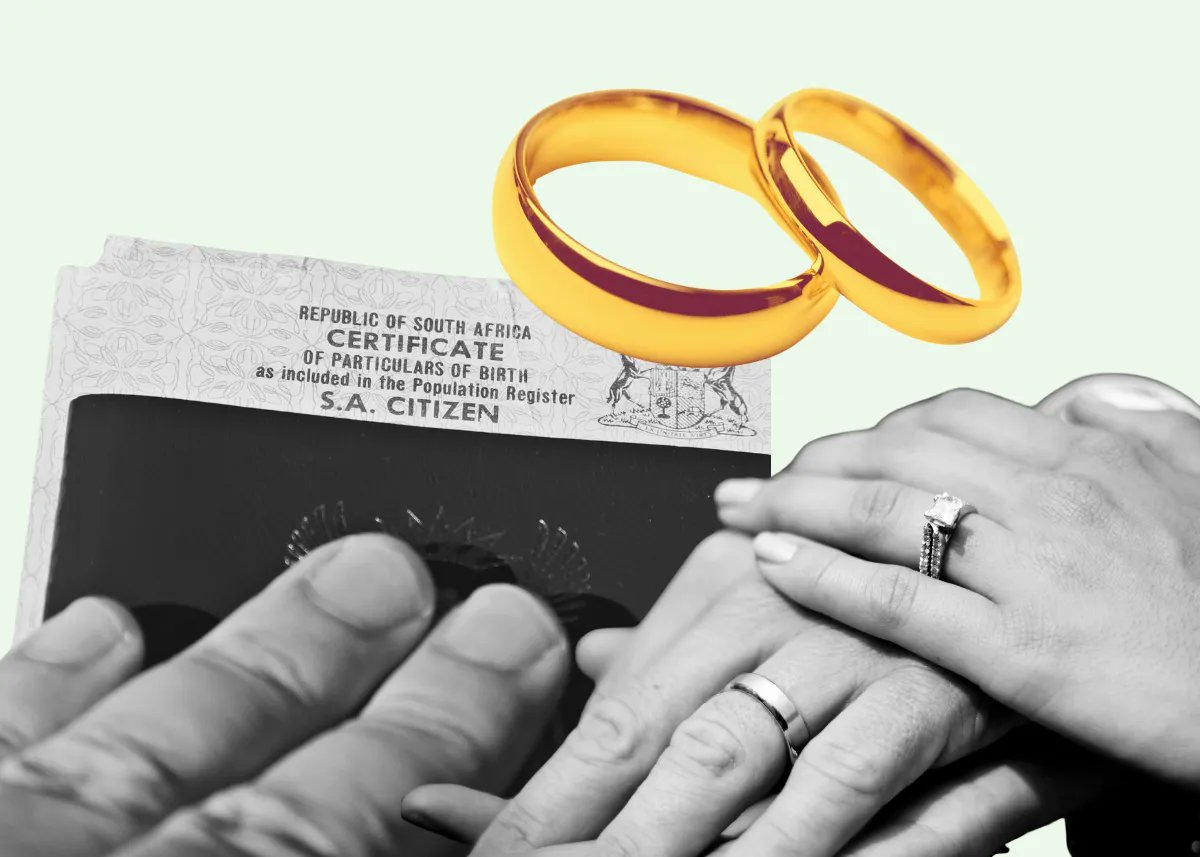News
Warning for Married Couples in South Africa: What the New Marriage Laws Could Mean for You

South African couples, whether newlyweds, long married, or simply living together are being urged to take a fresh look at their paperwork. Why? Because the country’s marriage laws are about to change in ways that could alter what happens to your home, savings, and property if your relationship ends, whether through divorce or even death.
Justice Minister Mmamoloko Kubayi has tabled the General Laws Amendment Bill, 2025, and while it’s being packaged as “divorce reform,” its reach is much wider. For the first time, courts may have the power to step into even the most airtight antenuptial agreements (prenups) if they believe fairness is at stake.
What’s Changing and Why It Matters
Currently, spouses married out of community of property without accrual (also called “cold exclusion”) walk away with whatever they brought in or earned during the marriage. The law doesn’t recognise non-financial contributions like raising children or managing the household. Many spouses, mostly women have been left with nothing after decades of marriage.
The new law seeks to fix that by allowing these partners to claim a share of the estate if ending the marriage would leave them destitute. In short: courts can now override a prenup if sticking to it would create a deeply unfair outcome.
But there are two big caveats:
-
The law won’t be retroactive. If you’re already divorced, you don’t benefit.
-
Even couples with carefully drafted contracts may now see judges stepping in.
Local Reality: Why Couples Are Nervous
In South Africa, marriage isn’t just about romance, it’s tied up with culture, tradition, and finances. For many Black families, for example, lobola negotiations carry as much weight as the legal paperwork. But while lobola symbolises union, the courts still only recognise formal marriage contracts when it comes to property.
On social media, reactions are mixed. Some welcome the law as “long overdue” justice for spouses who sacrificed careers for family. Others worry it creates uncertainty: “What’s the point of signing a prenup if the court can just undo it?”
Financial advisors are particularly concerned about property owners. As Renier Kriek of Sentinel Homes explained, couples need to think hard about their homes, businesses, and investment properties. If you don’t plan carefully, your biggest asset, your house could become the centre of a painful legal fight.
Breaking Down the Options
To understand why this matters, it helps to know how South African marriage contracts work:
-
In community of property: Everything, assets, debts, and liabilities, is shared equally. Romantic in theory, risky in practice. If your partner racks up debt, your house could be attached.
-
Out of community of property with accrual: Each spouse owns their own assets during the marriage. But at divorce or death, the growth in wealth is divided. This protects stay-at-home spouses while keeping some independence.
-
Out of community of property without accrual (cold exclusion): Total financial separation. Clean, simple, but historically unfair to the non-earning spouse.
-
No marriage contract: Common-law marriage isn’t legally recognised in South Africa, but courts can still get involved if life partners split up. A cohabitation agreement is your safest bet.
A Fresh Angle: Love Meets Law
Marriage has always been part heart, part contract. But these reforms underline a growing reality in South Africa: the law is moving to recognise emotional labour as real labour. Cooking, childcare, and years of unpaid support are now being weighed alongside paycheques and property deeds.
For couples, the message is clear, don’t wait until a crisis to figure this out. Review your contracts now, update your will, and if you’re buying property with a partner, get everything down in writing.
Because in today’s South Africa, marriage may still be about love, but it’s increasingly about the fine print too.
Whether you’re married, engaged, or living with a partner, this law could reshape your financial future. The safest move? Speak to an attorney before Parliament makes these changes official.
{Source: BusinessTech}
Follow Joburg ETC on Facebook, Twitter , TikTok and Instagram
For more News in Johannesburg, visit joburgetc.com















